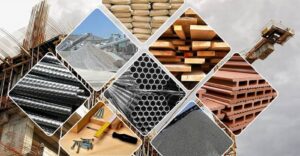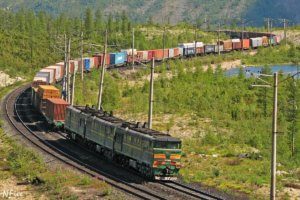
Prime Minister of Ukraine Denys Shmyhal says that German construction materials company Fixit has received investment insurance from the German government to build a second plant in Ukraine.
“We want German business to invest in Ukraine, to invest in recovery, and within the framework of the forum we are signing important documents… The building materials company Fixit will build a second plant in Ukraine and will receive investment insurance from the German government for this purpose, which will be signed here on the sidelines of the business conference,” Shmyhal said at a press conference at the sixth German-Ukrainian Economic Forum in Berlin on Tuesday.
According to the prime minister, Fixit will also receive a EUR12 million loan from the German bank KfW. “This is a very important and significant project,” he emphasized.
BUILD, CONSTRUCTION MATERIAL, Fixit, GERMANY, INSURANCE, PLANT

Ukrainian producers of construction materials are concerned about a rise in Ukrzaliznytsia tariffs on freight transportation, the Association of Construction Materials Producers of Ukraine has said.
“In an internal instruction the Infrastructure Ministry has made public its intention to double the tariff for empty freight cars. While tariffs are rising it is impossible to transport construction materials via Lviv Railways… Freights are overcoming a distance of 150 kilometers for six to seven days,” reads the association’s statement.
In turn, Director General of Kovalska Group (based in Kyiv) Serhiy Pylypenko said that failures in Ukrzaliznytsia’s work lead to delays in construction
“Kovalska has to receive over 200 cars of raw materials per day… Due to Ukrzaliznytsia’s awkward management we are forced to delay the supply of construction materials which consequently impacts timely completion of construction activities,” he said.
Pylypenko added that overall costs of services provided by freight transportation companies grew by 60% over eight months in 2018. In particular, Ukrzaliznytsia increased tariffs on freight transportation by its own cars in July.
“In addition, Ukrzaliznytsia virtually does not have multipurpose rolling stock for the transportation of inert materials. Thus producers [of construction materials] have to use other types of cars (for cement, grain, and minerals) and pay extra fees for them in the form of a 20% tariff increase. Moreover, Ukrzaliznytsia’s shortage in locomotives is 130-150 units per day, while freight delivery time is longer by 2-10 days,” Pylypenko complained.